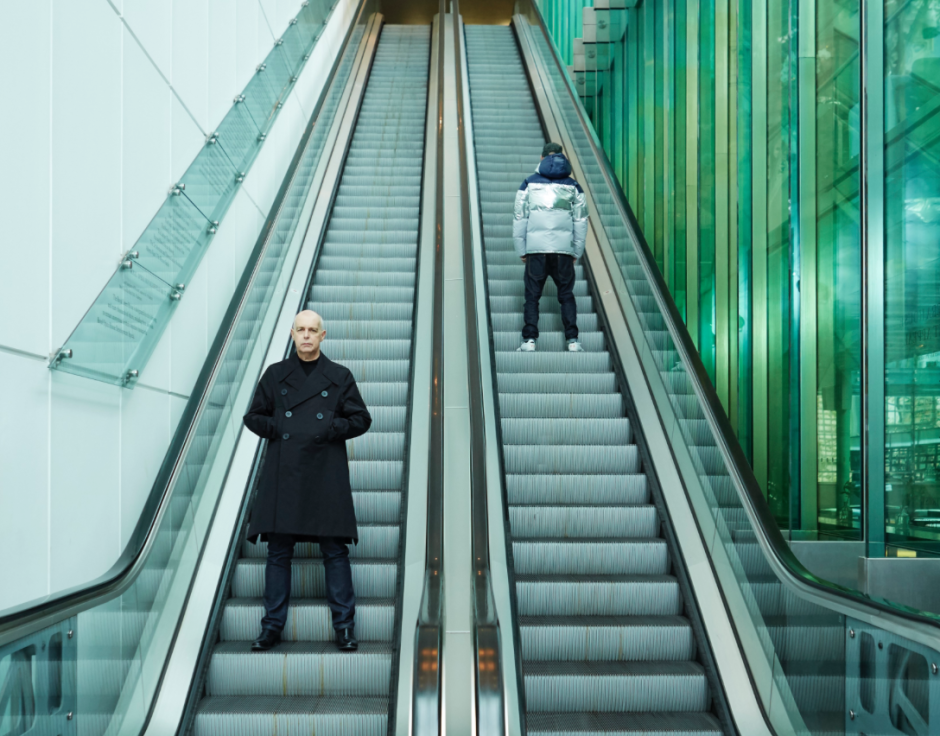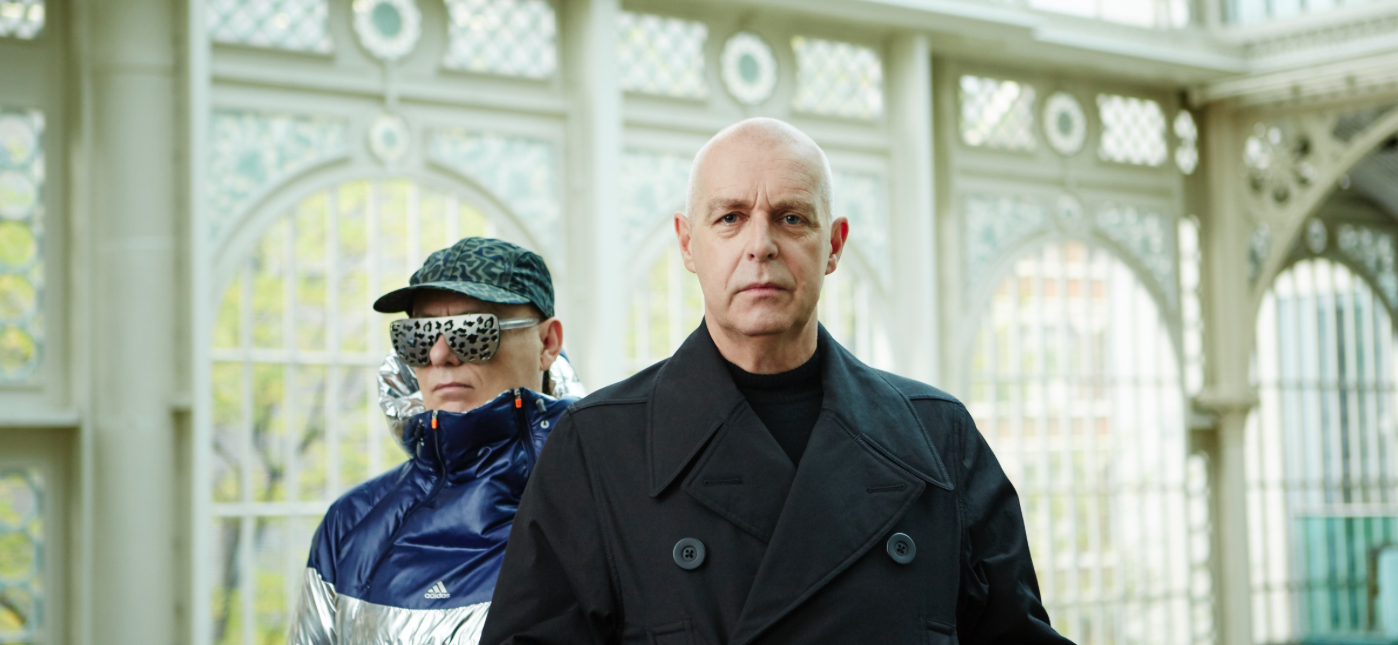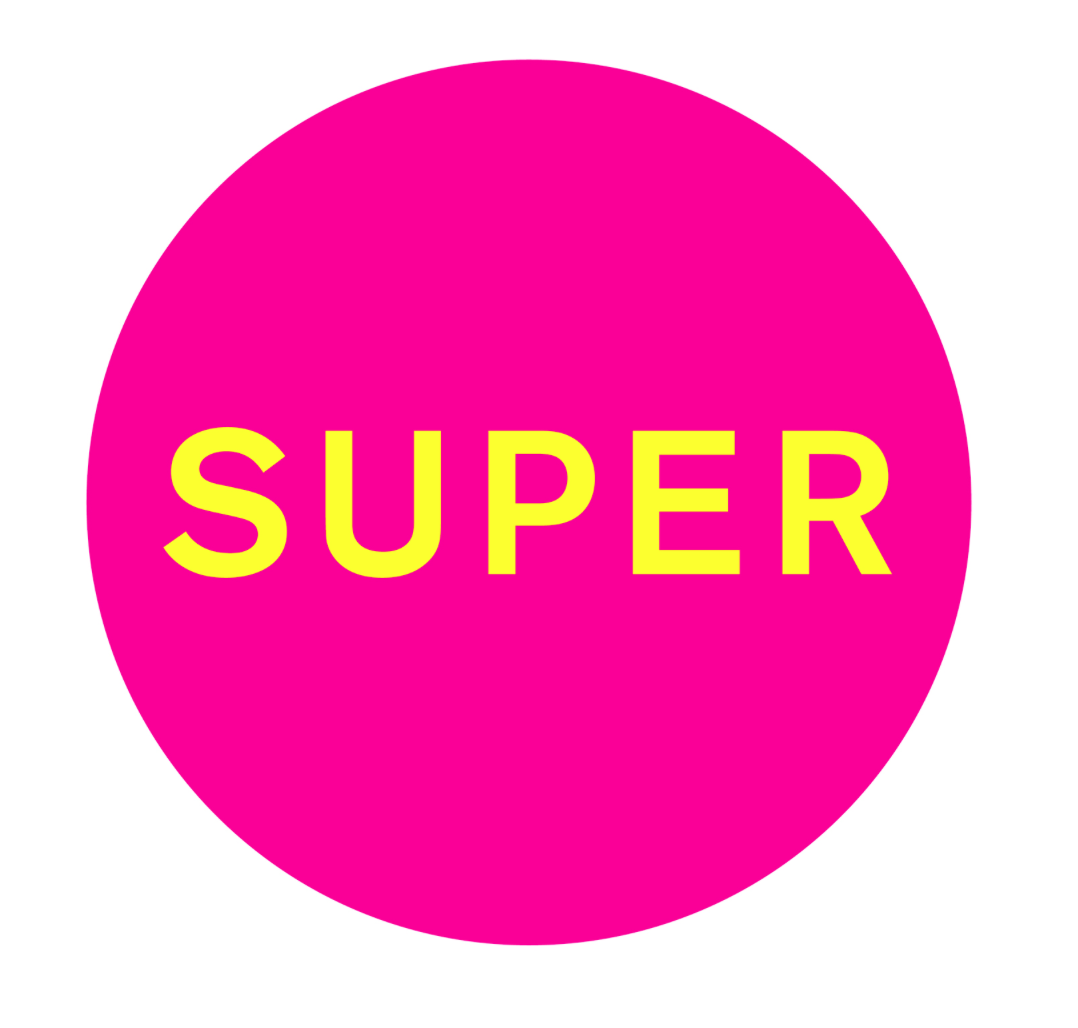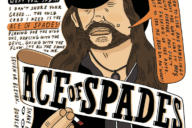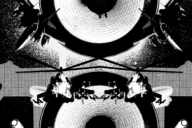PET SHOP BOYS ARE SUPER!
We chat to Chris Lowe and Neil Tennant about the new Pet Shop Boys album, Super, which comes three years after the brilliant success of Electric, their highest-charting album in the UK and USA for 20 years.
You toured your last album Electric for a long time – when did you start to write Super?
Neil We started to write this album in London in 2014. The first song we wrote was (the single) “The Pop Kids”…
Chris That was actually started on tour with Take That.
Neil I didn’t know that…!
Chris It was started in Munich. Hence it was originally called “Munich”.
Neil On the tour with Take That, Chris had a little keyboard set-up.
Chris After the shows I quite often don’t want a drink or even to go to the hotel bar – so rather than go to the hotel bar for one last drink I would switch the gear on and have a little go at writing some songs, without any thought of what they would be used for. But as I was doing this one (“The Pop Kids”) I did think it was rather good – so when we started writing for the album in Berlin I dug it up.
What inspired the lyrics for “The Pop Kids”?
N It is sort of a true story. You may have noticed that the lyrics say: “Remember those days, the early 90s? We both applied for places at the same university.” Mark Farrow (PSB designer) thought it was autobiographical. [Both laugh.] He said, “You’ve knocked a few years off there!” Actually, it’s about a friend of mine who moved from Birmingham to go to Kings College in London to study History and he made friends with a girl there. They both loved pop music and they used to go clubbing all the time and because of that they were known as the pop kids. I remember him telling me this and at one point I just wrote down the title “The Pop Kids” because I thought it sounded like a good song title. And when Chris dug out “Munich”, it made me think of “The Pop Kids” for some reason.
C And also, it’s very early 90’s sounding.
What’s the club on a Wednesday? Was that based on somewhere specific?
N No, I just made that up. But I do know that this person who inspired the song is the kind of person who would sweep to the front of the queue to get into a club and just get in.
C Yes I’ve always really admired people like that. We’ve always just joined the back of the queue. [Laughs.]
So going back to the start of the album, can you talk about when you wrote everything else?
N Everything else started in November 2014. We have a little studio in Berlin that we use and we go there to write. We also have a studio in London but a lot of the time we worked in Berlin. We started going over there for two or three weeks at a time, and just writing, and over this period, which would be from November 2014 to July 2015, we wrote about 25 songs. So 11 of them are on the album.
Would it be fair to say you were re-energised by Electric?
N I don’t think we ever really feel not energised when we’re writing music.
C But we did know that we were going to work with Stuart Price again, so we knew the sort of record that we would all enjoy making together. So we were sort of aiming towards that goal. And then Neil at one point said “we want to make it Electric but more so”. So it was going to be even more electric than Electric. That was the idea.
So do you think that’s what it is? Or then what happened?
N Stuart came over to our studio in London in July and we listened through to everything we’d written and made a decision to go with the more electronic/dancey ones, including darker songs, like “Sad robot world”. We had ones which were more conventionally “pop” that we decided not to put on, but maybe might be on the next album. We wanted to make an album that had a very strong electronic mood all the way through it. It felt like Electric had been a sort of “rebooting” of the Pet Shop Boys, reminding ourselves that we came into this whole thing because we liked electronic music. Until this album and the previous album we’ve never been electronic purists – there have always been other instruments and orchestras and things like that. Whereas this album and Electric are purely electronic albums.
When do you decide who’s going to be the producer, or had you already decided that?
C Well I don’t know if Stuart knew this but Neil had already announced that it was going to be a trilogy of albums produced by Stuart Price! But Stuart said a really nice thing – before we even worked with him – that he would work with us, but that we just didn’t know it yet.
Is there any weird juxtaposition between writing the music in Europe and then going to Los Angeles to record it, because I think you’ve got quite strong feelings about Los Angeles as a place?
C Not at all – really in this case it’s because Stuart is set up in LA but it could be anywhere really. Musically it doesn’t make any difference at all.
Because you didn’t write it there?
N No and also writing in Berlin; your classic writing in Berlin means you’re looking at the Berlin Wall or something and of course it’s not like that anymore. So writing in Berlin now, if there’s an influence, it’s the fact that you’re in a very clubby kind of place.
C Yeah when we were making the track “Inner sanctum”, and producing it with Stuart, we definitely kept thinking this should work well in Berghain, in that big cavernous power station. I mean you can imagine that even though you’re not in Berlin – even though you’re in Beverly Hills at the time!
Where did the album title “Super” come from?
C I was walking to the studio one day and I kept imagining Germans saying “super”, because they say ‘super’ in a certain way – “SUPER, JA! ” – and they say ‘super’ a lot… and I just thought “Oh, super!” Because we’d been through a few titles, hadn’t we?
N And “Super” is an international word. It’s a Latin word in fact.
C Also I could always imagine doing a “Super Hits Tour”.
Can you talk a little about “Twenty-something” and “Groovy”, where everyone’s doing a start-up and everyone’s groovy?
N Well “Twenty-something” is in the Pet Shop Boys tradition of observing. It’s just looking around in Shoreditch or Soho and seeing what everyone’s like, and also it’s about people you might meet. And also there’s this anthropologist side of me, looking at people and just seeing how we behave, and how interesting it is and how different people are from the way they were 20 or 30 years ago. It’s meant to be a sympathetic song because the basic message is that if you’re twenty-something it’s quite hard to get a decent job, and it’s quite hard if you do get a job to get paid enough money, and then it’s quite hard to get a flat in London. So it’s about being twenty-something in London specifically. Musically it’s quite interesting because it was inspired by Chris going to a club in Columbia.
C We were on tour all around Latin America, and we were hearing reggaeton everywhere. But there was this one night where we went to this great club in Bogota. On the top floor they weren’t playing house music and everyone in there was smiling and dancing to this reggaeton music. And on the way to our gig we were listening to a reggaeton radio channel and we were a bit obsessed with it really.
What is “reggaeton” ?
C [Reads] “Reggaeton is a music genre with roots in Latin and Caribbean music. It blends musical influences of Jamaican dancehall and Trinidadian soca with those of Puerto Rico such as salsa” – oh, imagine all of this on our record! – “salsa, bomba, Latin American hip hop and electronica. Vocals include rapping and singing – lyrics tend to be in a hip hop style.
N But not in this song! [Laughter.]
“The dictator decides” – Do you want to say who it’s about?
N Obviously we have several dictators in the world at the moment. What I hope is interesting about it is that in the song the dictator wants to be free as well. He’s sick of oppressing people and really he wants to give up and flee and live on the beach in the Mediterranean. I don’t even know why I thought of this, but it came to my head – the idea of a dictator wanting to give up, the dictator feeling trapped.
“Pazzo! ” means crazy doesn’t it?
N Yes, in Italian.
C We’d done a track, and we were just about to finish working in the studio and I kept all the sounds from this previous song and wrote this. It was just such a throwaway thing. Quite often that’s the case when you’re not actually trying to do anything and that’s all that was; it was done very quickly.
N On this album there are three almost instrumental tracks – “Happiness”, “Inner sanctum” and “Pazzo! ”– and I think they make the album breathe a bit. Also I like the instrumental electronic quality of them in the same way I liked David Bowie’s instrumental electronic tracks in the 70s.
“Inner sanctum” made me think of an updated “Sound of the atom splitting” or something crazy in that way…
N Yes it’s very expansive, the sound of it and of course it’s an EDM idea, “Inner sanctum”. We’ve been to clubs in Las Vegas and you think, oh, this is the inner sanctum – this is where you’re drinking champagne with the DJ.
Do PSB want to be in the inner sanctum or would you rather be outside?
C No, more like the outer sanctum.
N None the less, its trying to capture, in an un-cynical way, the excitement of getting into the inner sanctum and how you’re enjoying it and thinking you’re where it’s at and for many people there is an excitement and thrill about that – and quite rightly so. So it’s sort of celebrating life.
It does seem very celebratory this record, even though a lot of it is lyrically reflective.
N I think so too. I mean, opening with “Happiness” which is a sort of truthful, philosophical statement – “ It’s a long way to happiness but I’m going to get there…”
When you are making a record, at what point do you start to think how we are going to perform it or does that come afterwards?
N I don’t think there’s an influence as you’re writing it but we might say to each other “Oh, this might sound good in concert” or “This could be the opening track of the new show”.
And obviously there is a long string of amazing collaborators on live productions in your past. Do you want to talk about the process of collaboration on a live show?
N Well on the new shows, and on the last tour, and the tour before, we worked with Es Devlin and on the last two with Lynne Page. And they know from working with us that the conventions of the pop/rock concert don’t have to be observed – apart from the practicality that we can get the show in a venue and get it out again. Also with our shows there’s not a story line but there is a sort of through line that links the whole and Lynne is particularly good at achieving that with the choreography. And we like working with dancers. With this show, we will play the Royal Opera House and then a tour in probably 2017, with maybe some dates later in 2016.
Why the Royal Opera House?
N The Royal Opera House came about ages ago because, like all opera houses in the world, in the summer months, their regular opera and ballet companies aren’t doing performances and so the opera houses are rented out to touring opera or ballet companies. The Royal Opera House has been quite keen to broaden the audience that comes into it. For instance, a few years ago Rufus Wainwright did a series of shows there in the summer that worked very well and the ROH approached us to see if we wanted to do something similar. We thought it would be exciting, when you have a new album coming out, to have a big event and to play four nights at the ROH, a venue a lot of people won’t have been to, the grandest theatre in London with amazing facilities and all the rest of it. There is actually a creative tension between an institution like the ROH and electronic dance music and I think that we’re hoping that will prove to be a rather fruitful tension because it’s exciting to take electronic music into a venue that doesn’t normally have it.
So in terms of the production, will that be informed by the venues, because this is a show that you are going to have to take on tour? Or it is going to be especially for the ROH?
N I think there will be elements of it that will go into the next tour but with the ROH it’s an extraordinary space you’ve got. I think there will be a site-specific element to it. • And you’re working with Es Devlin again.
N Es has worked there quite a lot designing opera and she knows the ins and outs of the ROH and how the space works so she’ll have some great ideas.
Will people be able to stand up and dance? It’s not restricted?
N Yes, people will be able to stand and dance, albeit in a seated venue. I think it’s going to be exciting because it’s both a very glamorous place and an enormous cultural space which will be filled with electronic music. But at the same time we do feel a bit at home there – we have written a ballet, we did perform at the Proms last year at the Royal Albert Hall. It brings together different strands of what we’re doing.
And of course you played many nights at The Savoy Theatre.
N Yes, that’s probably the most similar thing to it, actually.
Lastly, how would you describe this album?
N I think its old Pet Shop Boys mixed with new Pet Shop Boys.
C It’s super, isn’t it?
Super is out April 1st

